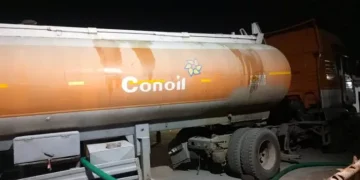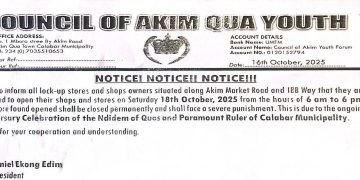By Admin
In a dramatic turn of events, a fuel tanker’s back tires burst into flames near a Conoil filling station in the Ekololu community of Surulere, Lagos. The incident occurred late Monday night, causing pandemonium and a temporary traffic gridlock in the area.
At approximately 10:30 PM, residents and passersby were startled by a loud explosion as the tanker’s tires caught fire. Eyewitnesses reported seeing thick smoke billowing from the rear of the vehicle, and flames quickly engulfed the surrounding area. The situation escalated as the fire threatened nearby structures and vehicles.
Fortunately, emergency responders acted swiftly. The Lagos State Fire Service, in collaboration with the Nigerian Police Force and other relevant agencies, arrived at the scene within minutes. Their coordinated efforts helped contain the fire and prevent further damage. Firefighters battled the flames, ensuring that the situation did not escalate into a major disaster.
The incident caused a significant disruption to traffic flow in the vicinity. Vehicles were unable to move for nearly an hour due to safety concerns and the need to create a safe perimeter around the burning tanker. Commuters and motorists faced delays as authorities worked diligently to secure the area.
Authorities are now investigating the cause of the tire explosion. Preliminary reports suggest that a mechanical failure or overheating may have triggered the incident. The tanker was carrying a substantial amount of fuel, which added to the urgency of the situation.
Residents expressed their gratitude for the prompt response by emergency services. Many praised the firefighters and police officers for their bravery in tackling the fire. However, concerns were raised about the safety of fuel tankers on the roads and the need for stricter regulations to prevent similar incidents in the future.
As the investigation continues, authorities are urging caution and vigilance on the part of all road users. Incidents like this serve as a reminder of the importance of safety protocols and the need for regular maintenance checks on commercial vehicles.
























